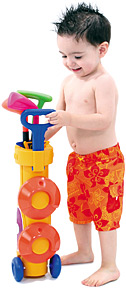Digestive Enzymes / Probiotics
These go hand in hand. A study of 36 autistic children given upper endoscopies (examination of the upper part of the digestive tract) revealed esophagitis, gastritis and duodenitis.
Limited carbohydrate enzyme activity was reported in over half of them The digestive abilities of children with autism are not the best, and many children are also on special diets, which can complicate matters.
Enhancing digestion with enzymes and beneficial bacteria can help improve the immune system and hyperactive symptoms.
Antioxidants
Our bodies are in a constant battle to prevent rusting. The brain can rust as well, which worsens symptoms. Inflammation causes oxidation, which destroys the body, even the neurons. Most children with autism have decreased antioxidant levels. Vitamins A, C, and E, zinc, selenium, CoQ10, N-acetyl cysteine, glutathione, and others are great ways to nutritionally reverse rusting. They are mainstays of anti-aging therapies, and work for the brain as well.
Bowel Movers
So many children with autism are constipated. Magnesium, mineral oil, and topical castor oil can help move the stool through the bowels.
As any parent knows, when it comes to supplements, the big issue is compliance. Some supplements are less than palatable, particularly for children, and many children have specific tastes. If there's an easy solution, it's to come up with ways to get them to take supplements. Applesauce and yogurt are old standards to sneak supplements into children. You can also try making popsicles or Jell-O cubes in an ice cube tray and dosing the supplements in there. Other parents will buy a syringe from the drug store, because their children are used to taking medicine that way, and pile different liquid supplements in all at once.
The answer for autism is still being discovered, but we're making progress along the way. I wish we could flip a switch and children would instantly be better, but it just doesn't work that way. Try as many things for your child as possible to see what works best, working in conjunction with your doctor. And take videos of your child every month. It's easy for us to forget what last month or last year was like. It's important to see how your child is improving. This is a journey of a thousand steps, but I promise, your child will get better along the way. Remember, talk to your doctor for more information so you can develop the best strategy to help your autistic child.
 What Is Autism?
What Is Autism?
Delay in spoken language
Repetitive motor habits or language
Less-than-normal eye contact
Lack of socialization with peers
Lack of make-believe play
Fixation on certain parts of objects
Problems with sleep
Hyperacute senses
What Is Autism NOT?
It is NOT from bad parenting
It is NOT a genetic condition
It is NOT something kids will grow out of
It is NOT something to be ignored
Jared Skowron, ND, teaches pediatrics at the University of Bridgeport and is a certified DAN (Defeat Autism Now) doctor. He is the author of Fundamentals of Naturopathic Pediatrics. Visit www.naturopathicanswer.com to learn more.

